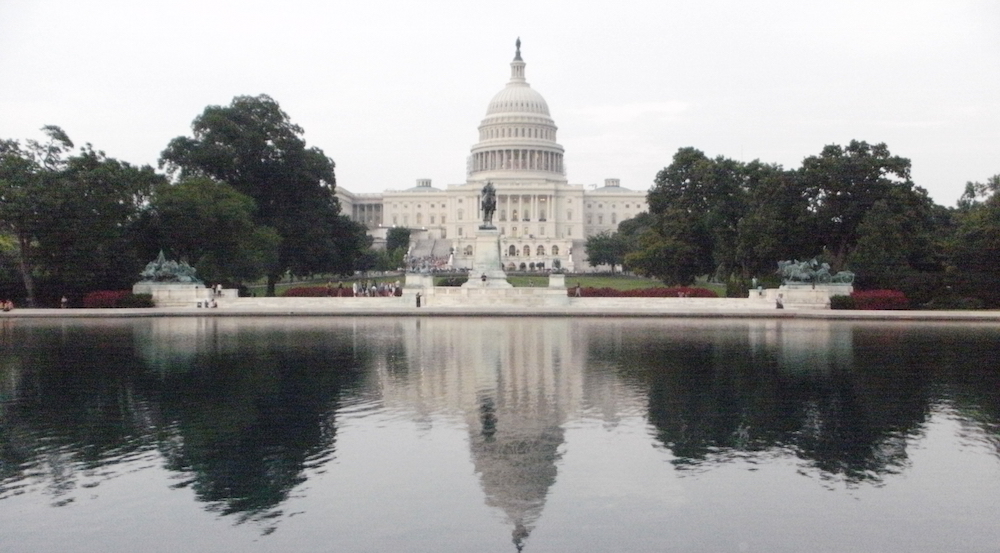At long last, the economy appears to be improving. So who do we thank? President Barack Obama? The Federal Reserve? Oil companies? Mitch McConnell would have us thank the GOP, which took control of Congress on January 3. “The uptick appears to coincide with the biggest political change of the Obama administration’s long tenure in Washington: the expectation of a new Republican Congress,” McConnell said.
PolitiFact rated this claim a flat-out false. “Even leaving aside the question of causation, key statistics show that the economic recovery was under way well before September, which is our best estimate for when the ‘expectation’ of a GOP Senate solidified,” PolitiFact wrote. McConnell’s statement seems to suggest that the a Republican majority Congress will pass legislation conducive to continuing the economic upturn. But so far Congress has proven that just the opposite is the case.
Among the 114th Congress’s initial pieces of legislation is the Promoting Job Creation and Reducing Small Business Burdens Act, which, in spite of its title, will likely do little to improve either of those goals. What it will do is gut the Dodd-Frank Act, passed in 2010 to prevent the sort of negligent financial activities that led to our most recent recession. If the legislation passes, banks will be able to hold onto risky assets for an additional two years and derivative trading will become less transparent, factors that might ripen our financial sector for another meltdown. How disappointing it would be for the United States to end up back where it was in 2008 just when things are starting to get really good, with unemployment at 5.6 percent and with 2.95 million jobs added over the past 12 months.
Prices at the gas pump have dropped by half, a phenomenon that is projected to last well into 2015.
The bill was passed on Wednesday. President Obama is likely to veto the bill, but Congress has proven its point: that it is largely unconcerned with the well-being of the people of this country. We elect our representatives and senators. But we are not the only ones they represent. In fact, “we the people” don’t even come first. We must wait in line behind the lobbyists, individuals and corporations who contribute large sums of money to increase the likelihood that their chosen representative will get elected and stay in power. With the vast income gap in this country, money increasingly becomes the key determinant of political power in this country.
We elect our representatives and senators. But we are not the only ones they represent.
Actions like passing the Promoting Job Creation Act are clear examples of how unrepresentative Congress is of its voters. It makes an enemy out of regulation, the bane not of the common people but of the cronies of big business.
If these members of Congress, bent on deregulation, wish to simultaneously call themselves promoters of capitalism, considered a strong American ideal, they’d better open their eyes to how far this country has deviated from capitalism as Adam Smith saw it, which fundamentally requires a regulating body to protect the market from failure. Government, designed to protect the interests of the public at large, ideally fill this role. But when conflict of interest arises in government, it can no longer function as an effective regulating body. Obviously corporations despise the blow to the profit margin, but we need anti-trust laws to keep them from monopolizing entire industries. The Dodd-Frank Act may not be perfect, but the regulation it sets keeps the financial institutions from taking our economy out on another cheap thrill ride followed by a seven-year-long hangover.
Most people are either unaware of this reality or are aware but simply apathetic toward it. I fall into this latter category. So why do I even discuss it? Because the whole thing makes me wonder why it is we as a society, myself included, remain so apathetic towards the corrupt relationship between our government and big business.
But the result of this apathy is the failure of democracy, the sort that allowed the GOP to take control of the Senate in this past midterm election. Although we generally anticipate low voter turnout in midterm elections, this particular election had the lowest turnout since World War II with only 36.4 percent of eligible voters casting ballots last November. Are we so naive as to see the presidential election as more important than the election of members of Congress, who on average serve for nine or ten years, longer than the maximum amount of time the president can serve?
Such low voter turnout should speak for itself. Were the act of not voting to be read as a vote of abstention, then we could toss the current candidates in favor of ones who might incite better turnout, meaning candidates who more fully represent their constituency. But that’s not the way the law is written. But the power is ours for the taking, if we so dare. Or rather, if we so care.
Assistant Editorials Editor Erik Alexander is a College junior from Alpharetta, Georgia.
Erik Alexander is a College senior majoring in economics.



